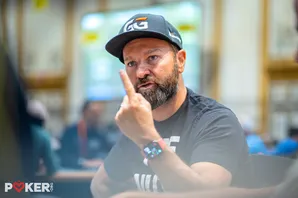Ask most people today what the term ‘Black Friday’ means to them, and they’d almost certainly reply with something to do with shopping after Thanksgiving. But for poker players with longer memories, especially across America, it is sure to evoke more painful feelings.
That’s because for online poker in the USA, Friday April 15, 2011, marks the end of a golden era of unfettered access to real-money poker games. If you live in a US state that does not offer plentiful options for legal, regulated online poker - and the odds are that you do - it’s largely because of what happened that day, well over a decade ago.
Back to 2011
Online poker was barely a decade old, and the laws of the USA had not yet adapted to regulate the industry. There were no licences for operators and no regulation, and the Unlawful Internet Gambling Enforcement Act (UIGEA), passed five years prior and implemented in full during 2010, was being challenged and tested every day.
The Act aimed to stop operators from accepting payments relating to internet gambling, and financial institutions such as banks from processing such payments, effectively prohibiting online poker.
Some operators, such as partypoker (which also offered luck-based casino games, as opposed to pure poker), left the USA altogether. Others, including PokerStars, Full Tilt and Ultimate Bet, remained; the intent was for these poker-only platforms to appeal the Act, make the case for poker as a game of skill, and continue to offer their services to players worldwide. And this was not some hidden, illicit game, taking place away from prying eyes; online operators continued to sponsor high-profile players and market heavily. When Jonathan Duhamel won the WSOP Main Event in 2010, he did so bedecked in prominent PokerStars branding.
The shutters come down
Any hopes of a compromise being reached which would allow Americans to continue playing online poker were dashed on April 15, 2011. Players trying to log in to their accounts found that the domains - and therefore, effectively, their online balances - had been seized by the FBI.
[From April 2011] It's a bad scene for online poker in the States. There are no laws on the books that say it's illegal to play poker online. But the Attorney General decided to use his view of those laws and say, "yes, this is illegal gambling". Playing online is a personal liberty, especially in a country formed on freedom. [On guaranteeing player's money] Tom Dwan texted me to ask if I would come out with a similar statement, but I can't guarantee hundreds of millions in players' money. I believe they'll get paid, and if I didn't believe it and PokerStars started being a company that didn't have integrity, I'd take the patch off. At some point the regulators will become more educated in what online poker is and what they're dealing with. And of course they'll also see there is a revenue stream for taxing. Hopefully, we'll eventually get to a place where laws say that online poker in the US is legal.
The result was a truly dark day for online grinders, as entire bankrolls were locked away out of reach, destroying many players’ livelihoods and culling the global population of recreational poker players in one fell swoop.
PokerStars was the first operator to attempt to make its players whole, quickly agreeing a deal with the Department of Justice to re-open its URL and enable withdrawals, and was able to shift its focus to international regulated markets. It later went on to do the same for Full Tilt players, as part of a $731m settlement with the DOJ, acquiring the assets of Full Tilt Poker and reimbursing the balances of all of that company’s USA and European players (the latter running to a further $184m). Full Tilt continued as a separate brand for a few more years before merging liquidities with PokerStars.
Ultimate Bet and Absolute Poker players, however, already impacted by one of the bigger poker scandals of the 2000s, would have to wait many years for restitution, if they received it at all.
The aftermath
Following the domain seizure, Full Tilt was found to be mixing player funds with operating funds, leading to the arrest of its CEO and the ostracization of many of its most high-profile backers such as Chris Ferguson, Annie Duke and Howard Lederer.
Absolute Poker’s co-founder, as well as numerous banking executives, were charged with financial crimes. PokerStars’ founder eventually pled guilty in 2020 to a single charge relating to illegal gambling, receiving a small fine and no jail time due to PokerStars’ extensive and costly efforts to make players whole. The company made a similar effort following the collapse of PKR.com in 2017.
Five years after Black Friday, 2016 saw regulated online poker make a return to the USA as New Jersey became the first state to offer licences. More have followed since, ACR offers a widely available yet unregulated online option, and ClubWPT has sidestepped the legal minefield by using a subscription-model.
Online poker in America is still there, but many would argue that things ain’t what they used to be, compared to the ‘golden era’ of the 2000s. And for those who were grinding this week in 2011, nothing will compare to the shock they experienced that Friday in April.




















